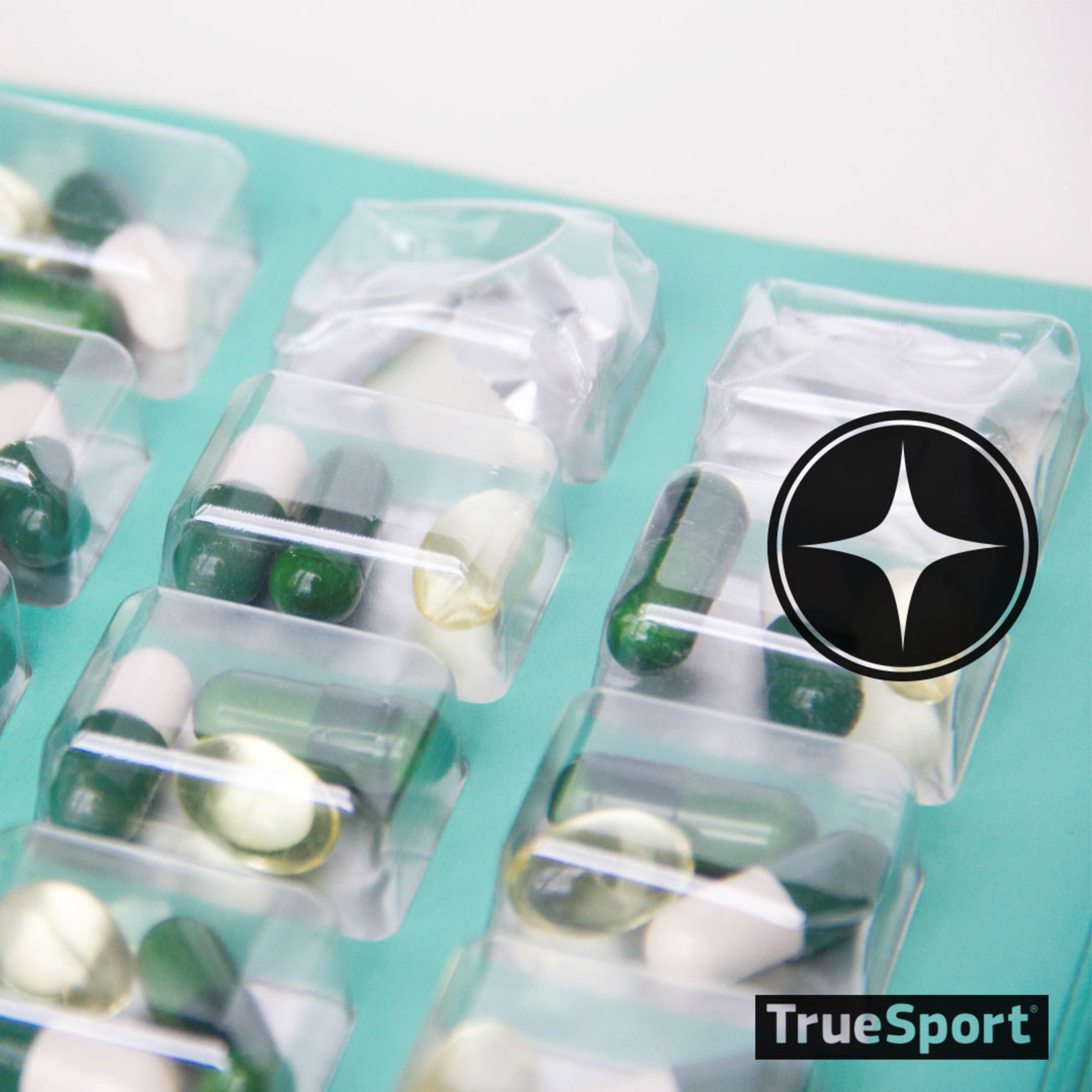TrueSport: April 2019

What you need to know about e-cigarettes and vaping, myths parents need to know about supplements, why clean and healthy competition matters and more this month from TrueSport.
Trending
What you need to know about e-cigarettes and vaping
After decades of declines in tobacco use by teenagers, vaping and the use of e-cigarettes is surging in high schools and middle schools nationwide. According to a November 2018 advisory from the U.S. Surgeon General, e-cigarette use increased 78 percent among high school seniors and 48 percent among middle school students from 2017 to 2018.
As they have before, parents, teachers and coaches must once again help kids understand the risks and learn to reject nicotine and tobacco.
The appeal
Vaping eliminates several of the barriers that discouraged kids from sampling and getting hooked on nicotine. There's no lighter, or hot, harsh smoke to inhale. A single pen-sized Juul, which has an estimated 75 percent of the market, is also easy to conceal and contains the nicotine content of a pack of 20 cigarettes. Maybe most importantly for teens, it's hard to detect because the vapor doesn't linger on the user's clothes or breath. The industry is also making vaping more appealing to kids by focusing on fruity and dessert flavors.

E-cigarette risks for teens
Vaping doesn't look, smell, taste or linger the way conventional tobacco products do, and the sleek and clean design gives a false impression that e-cigarettes are safe.
According to the U.S. Surgeon General, here are some of the reasons they are not:
- Physical effects of nicotine: Potent stimulant, increases blood pressure and heart rate, increases arterial stiffness.
- Addictive: Nicotine is physically addictive and young, developing minds are more susceptible to learning addictive behaviors.
- Brain risks: For the still-developing brain, nicotine can increase the likelihood for mood disorders, permanently reduce impulse control, and reduce cognitive abilities.
- Greater tobacco and drug use: There is no evidence to support the idea that e-cigarettes keep people from using burned or smokeless tobacco. While a small number of tobacco users have used e-cigarettes to quit smoking, far more new e-cigarette users subsequently start using conventional tobacco products.
E-cigarettes and sport
Nicotine is a powerful stimulant with a long association with sport, particularly baseball. However, according to a 2017 review study, athletes in football, ice hockey, wrestling, gymnastics and skiing are increasingly using it as well. While appealing to many athletes, the ergogenic effect may be overestimated. It is also important for coaches and parents to know athletes reported using nicotine for alertness, weight loss and preventing dry mouth.
Addressing the problem
Though the U.S. Food and Drug Administration announced plans to restrict flavored e-cigarette products, they are currently easy to get. In the meantime, the Surgeon General and Centers for Disease Control recommend a number of ways parents, coaches and healthcare providers can help address the problem, including the following.
- Be a good example: Quit personal tobacco use and establish tobacco-free rules for your home or sports facility.
- Initiate the conversation: Instead of waiting until a young athlete brings it up, use cues, like a person vaping nearby, to bring up the topic more naturally.
- Learn so you can educate: Learn what e-cigarettes look like and how they work, as well as the health risks of nicotine. Nearly two-thirds of Juul users age 14-24 do not know Juul always contains nicotine.
- Repeat the message: Just like practicing new sport skills, saying it once isn't going to do it. Find new ways to communicate the message, like using a team approach and including conversations with a doctor, coaches, teachers and athlete role models.
The good news is that even with the dramatic increase in vaping, four out of five high school students are NOT doing it. Nationwide efforts to reduce tobacco use have worked in the past. Parents, coaches,and teachers played a big role in those successes, and can do the same again.
Parents
Four myths parents need to know about supplements
Dietary supplements are omnipresent in sports. When youth athletes see their professional idols or peers using supplements, they may feel supplementation is necessary to keep up with the competition. Since they are so readily available, it's also easy for parents to think there's no harm in letting athletes use them.
Unfortunately, the supplement industry is one of smoke and mirrors. Although they might seem appropriate for young athletes trying to stay healthy and competitive, there are many myths surrounding supplements that parents should be aware of before choosing to buy these products.
MYTH: A supplement found on store shelves is safe
While you would think that a supplement sold in a health food store or pharmacy has been thoroughly vetted for safety and efficacy, that's not the case due to how the U.S. supplement industry is regulated.

MYTH: Labels tell you exactly what's in a supplement
Post-market regulation also makes it possible for supplement labels to be extremely misrepresentative, as well as intentionally deceptive, about what is actually in a product.
Many supplement companies list 'Proprietary Blend' on the label, meaning they can hide any ingredients they want, including those prohibited in sports, under that name. Other companies list ingredients under scientific names, or even fake names, that you might not recognize as anything dangerous or illicit, even if you are careful about reading the label.
In other cases, supplements that aren't meant to contain potent substances become contaminated as a result of being produced in the same setting as higher-risk supplements. The manufacturer may be unaware and the label won't reflect the error, but consumers are still at risk when products don't undergo pre-market analysis and certification.
MYTH: Natural ingredients mean a dupplement is safe
Supplement companies often brand their products as being 'all-natural' or 'organic,' usually with a green 'certified' logo that provides a holistic vibe. However, there's plenty of things in nature that can cause serious damage to the human body, and unfortunately these are sometimes found in supplements.
The classic example of this is ephedra, an ingredient from a plant of the same name, which was popular in weight-loss supplements. After the ingredient was tied to the deaths of several young athletes and an NFL player, as well as other severe side effects in many more people, the FDA banned the ingredient from being sold in supplements in 2004. However, products that contain ephedra extract are still legal.
MYTH: Recalled or proven dangerous products can no longer be bought
Unfortunately, after a supplement has been proven dangerous and recalled, it doesn't magically disappear from the market.
Instead, it's up to the retailer to pay attention to recall announcements and remove the product from their shelves. This means a dangerous product can stay on store shelves for years after the fact and that someone who has already bought said product would never know that it's been recalled.
How to decide if supplements are appropriate
While many people use supplements without adverse health consequences, it's vital for consumers, and especially athletes who may be subject to anti-doping rules, to understand there is no such thing as a 'no-risk' supplement, only a 'lower-risk' supplement. In most cases, a healthy, balanced diet will get athletes the nutrients they need to stay fit and perform at their best. Some athletes may have specific nutrient deficiencies, but those should be diagnosed and treated in collaboration with your physician.
Before letting your athlete take any supplement, even one recommended by a physician, always do your due diligence by researching a supplement's ingredients and manufacturer. For more information on these best practices and other helpful information about supplements, download the TrueSport Supplement Guide.
Coaches
Clean and healthy compeition: Why it matters
Why do you and your kids love sports? Maybe it's the pure joy that comes from playing alongside teammates united by a common goal. Maybe it's the sense of wonder in what the human body can achieve through hard work and talent. Or maybe it's the instinctive thrill of competition and the possibility of victory. Maybe it's all of those things.
All these reasons, however, can be threatened by the same thing -- cheating. And when cheating takes the form of doping, it not only threatens the value of sport, but more importantly, the health of the athlete.
With the competitive nature of youth sports escalating, the temptation to rise above the competition through the use of performance-enhancing drugs will also start occurring to athletes at a younger age. This, and the increasingly easy access to potent substances, is why coaches, parents and youth sport role models must help shape an environment that prioritizes clean and healthy competition.

Promote a level playing field
Using performance-enhancing drugs to gain an unfair advantage devalues the hard work and hours of training other athletes have invested in themselves and in their teammates.
According to the _TrueSport Report_ released by the U.S. Anti-Doping Agency, "more than half of the general population agree that there are sports that are accepting of unethical behavior. In addition, more than one-third of children agree that some sports do a bad job of teaching the difference between right and wrong."
But at every level of competition, athletes, coaches officials and parents can help create a culture of clean sport.
Whether it's something as simple as faking a foul, or as serious as taking a performance-enhancing drug, young athletes need to know that no form of cheating is acceptable. Instead, help reinforce the concept that competing fair, with respect and integrity, is always more important than winning.
More specifically, you can help combat the 'winning-at-all-costs' culture by tracking teamwork, improvement, attitude and resilience as closely as you do wins and losses. You can also communicate to athletes that failure is natural, and even preferred if the alternative is cheating.
Also keep in mind that young people often learn best from watching others, making it crucial that coaches, parents and officials conduct themselves properly as an example of great sportsmanship for young athletes.
Keep kids healthy
It's tempting for athletes of all ages to want to secure an edge over their competitors. But, there's a difference between performing efficiently and taking a harmful shortcut with serious health consequences. Those potential consequences, both short-term and long-term, may not occur to a young athlete whose focus is on the immediate reward.
Help your athletes understand that there are serious health consequences associated with performance-enhancing drugs. Stimulants and anabolic agents, some of which end up illegally in supplements, are easily accessible on store shelves and online, especially those used for energy, muscle building and weight loss. The effects may not always be immediate, but they can impact an athlete's quality of life long after they stop playing sports.
To ensure your athletes are ready to perform at their best without dangerous substances, make sure they eat a well-balanced meal of protein, carbohydrates and fats, while allowing themselves an adequate amount of recovery time between practices and big competitions.
___
Every young athlete deserves to have fun and compete in a fair game.
At the end of the day, competing clean and healthy is what matters. Any result aided by performance-enhancing drugs will rob young athletes, their teammates, opponents, coaches and parents from celebrating a true victory.
It's not too soon to start proactively cultivating a culture of clean and healthy performance that helps protect all athletes and sports from the physical and ethical effects of doping.
About TrueSport
TrueSport®, a movement powered by the experience and values of the U.S. Anti-Doping Agency, champions the positive values and life lessons learned through youth sport. TrueSport inspires athletes, coaches, parents and administrators to change the culture of youth sport through active engagement and thoughtful curriculum based on cornerstone lessons of sportsmanship, character-building and clean and healthy performance, while also creating leaders across communities through sport.
For more expert-driven articles and materials, visit TrueSport's comprehensive LEARN resource.
This content was reproduced in partnership with TrueSport. Any content copied or reproduced without TrueSport and the U.S. Anti-Doping Agency's express written permission would be in violation of our copyright, and subject to legal recourse. To learn more or request permission to reproduce content, click here.
